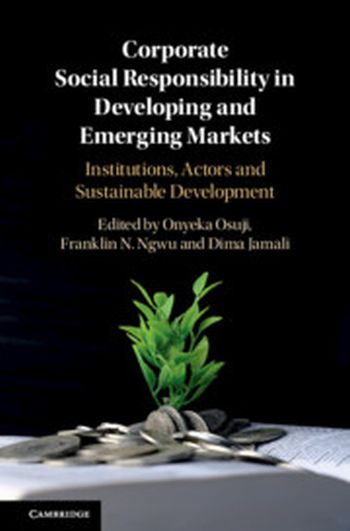We will be closed from 5pm Thursday 17th April for the Easter Bank Holidays, re-opening at 8.30am on Tuesday 22nd April. Any orders placed during this period will be processed when we re-open.

Corporate social responsibility (CSR) has emerged as a tool for public and private institutions to promote sustainable development in developing and emerging markets. This work brings together contributors from a variety of fields and international perspectives to assess and improve the effectiveness of CSR by addressing the following questions: What are the linkages between CSR and sustainable development? What does CSR mean for developing or emerging economies and in what ways does this deviate from orthodoxies and universalist approaches? What institutional factors and actors influence the effectiveness of CSR in developing and emerging economies? How can developing and emerging economies promote a flexible, diverse and reconstructed form of CSR that leads to inclusive and sustainable development? This book should be read by anyone interested understanding what normative factors, theoretical models, policy strategies, and corporate practices best facilitate effective CSR and sustainable development.